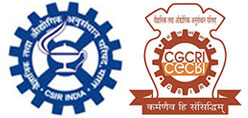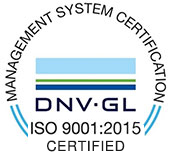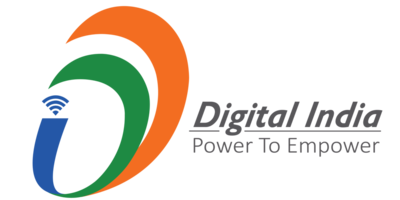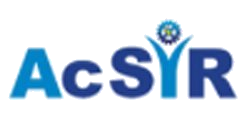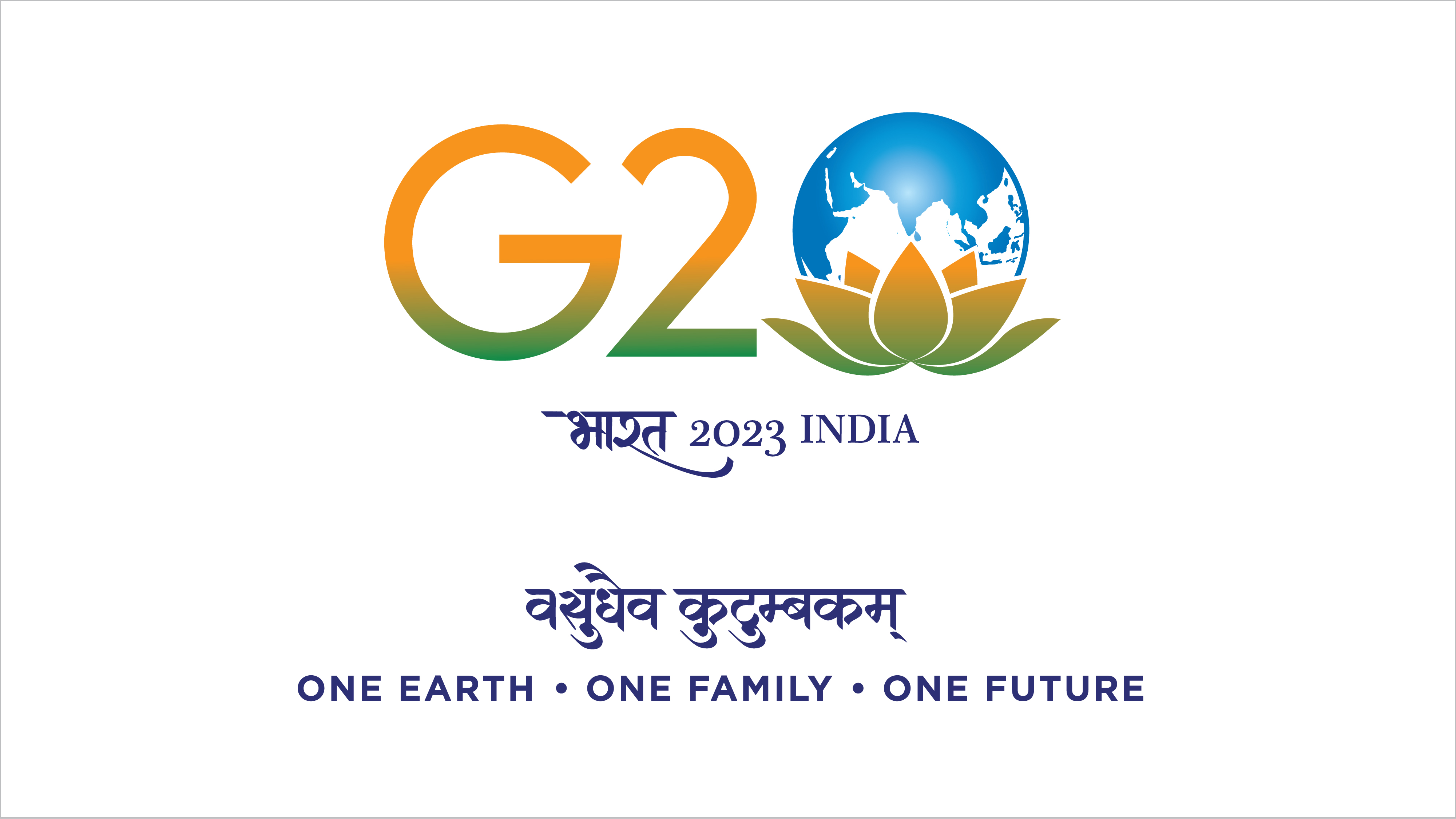English | हिन्दी
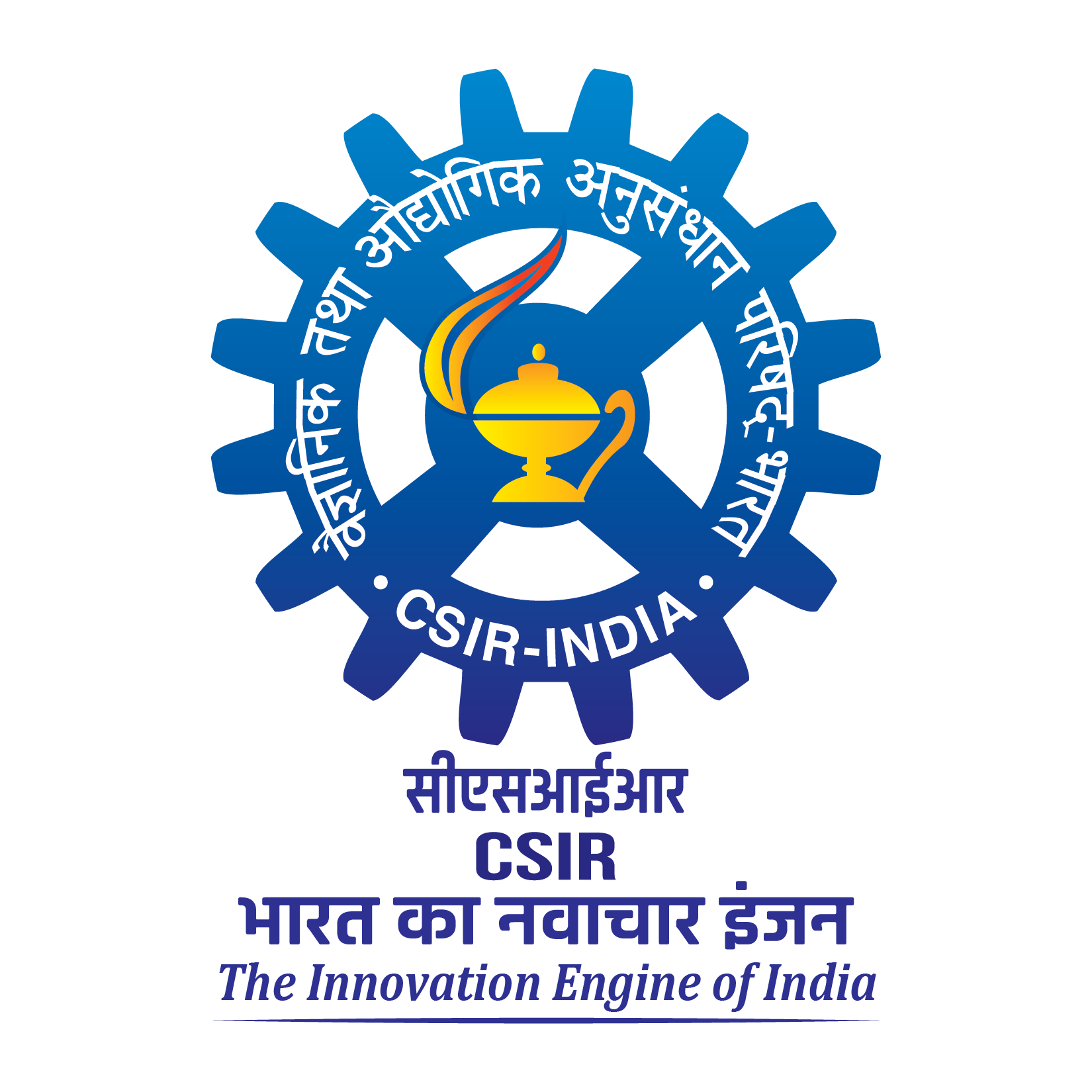
সিএসআইআর-কেন্দ্রীয় কাঁচ ও সেরামিক গবেষণা সংস্থা
सीएसआईआर-केंद्रीय काँच एवं सिरामिक अनुसंधान संस्थान
CSIR-Central Glass & Ceramic Research Institute
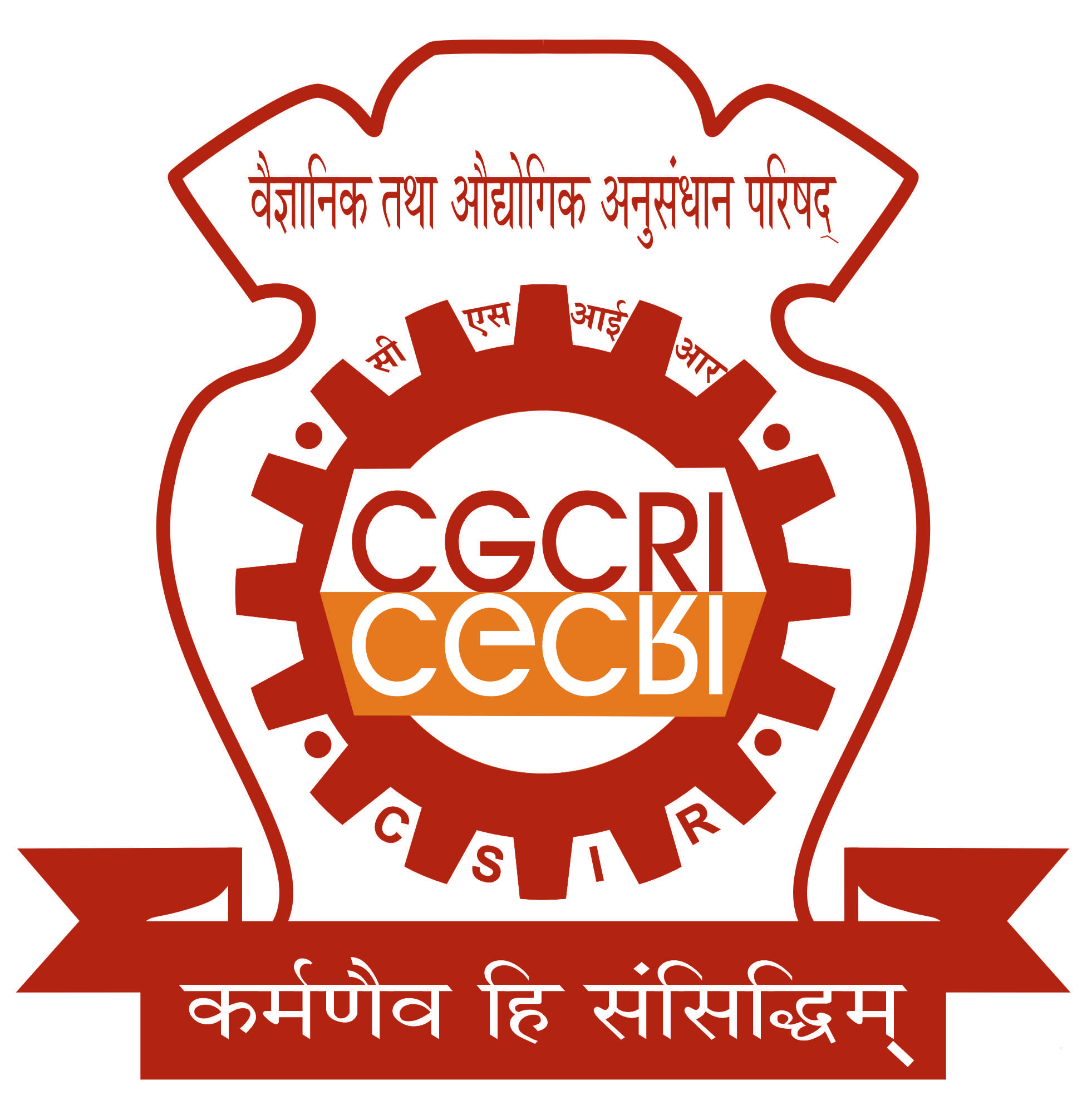
BIOCOM2021
HIGHLIGHTS AND A BRIEF REPORT ON BIOCOM 2021
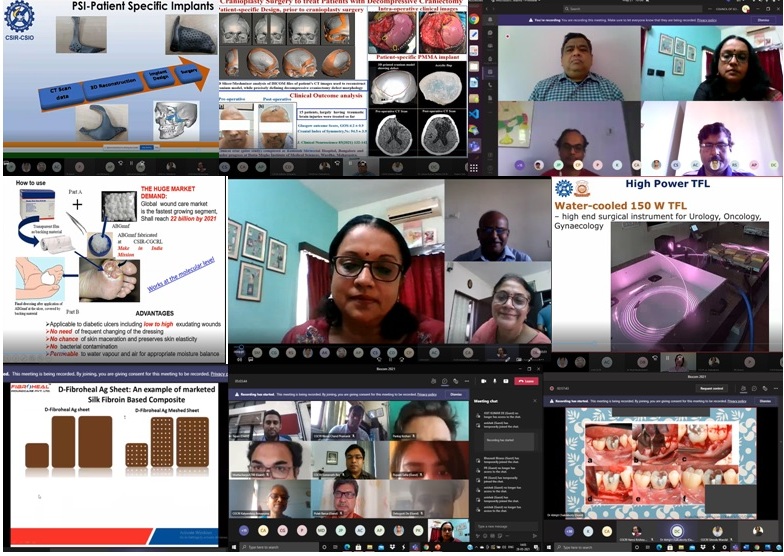
Fig.: Highlights of the two day webinar, BIOCOM2021, dated 27th and 28th May, 2021 at CSIR-CGCRI,organised by Bioceramics and Coating division, showing the technical session with Dr. Suman Kumari Mishra, Director CSIR-CGCRI, Prof. T.S.Sampath Kumar of IIT, Madras and Prof. Bikramjit Basu of IISC, Bangalore, Shri Sitendu Mandal and Dr. VamsiKrishna Balla of CSIR-CGCRI as session chair and moderators, alongwth convener, Dr. Jui Chakraborty. Among the products and prototypes discussed, the multipurpose dressings (silk fibroin based) of M/S Fibroheal Ltd. worths mention (Dr. Tapan Dash).
In continuation with the last year’s BIOCOM 2020, this year too, BIOCOM 2021 was organised, for a two day period of May 27 and 28, with an attempt to have wider participation and an exchange of knowledgebase among the multifaceted expertise of the biomaterials researchers in the country covering the vast areas of biomaterials and implants. Unlike last year, this year the webinar theme was based on the most recent research/technology developments in the area under discussion in the country.
The webinar was inaugurated by Director, CSIR-CGCRI, Dr. Suman Kumari Mishra. In her welcome address on 27th of May, she had discussed in detail about the pros and cons of the whole gamut of biomaterials science and its adaptation among the biomaterials researchers in the country. Following the welcome address, Dr. Vamsi Krishna Balla, Scientist G of the organising division elaborated upon the theme of the webinar and the inaugural session was concluded by ‘Vote of Thanks’, delivered by Dr. Jui Chakraborty, Convener of the webinar. Shri Sitendu Mandal, Head, Speciality Glass division, Dr.K. Annapurna and Dr. Sunirmal Jana of the same division, Dr. Vamsi K.Balla, Dr. Sumana Ghosh, Dr. Pradyot Datta and Dr. Subhadip Bodhak, active biomaterials scientist of Bioceramics and Coating Division, all played a key role to efficiently moderate, chair and manage the technical sessions of the program.
Prof. Bikramjit Basu, a renowned Biomaterials researcher and Professor, IISC, Bangalore had outlined the latest scenario of biomaterials research in the country, in a wide spectrum of clinical application of biomaterials to 3D bioprinting of implantable biomaterials, unique magnetic and DC electric field induced antimicrobial strategies, delivery of electric stimuli in stem cell culture for programmed regenerative engineering. He also expressed his recommendations to build up clinical context driven translational research, strengthen industry collaboration and sustain incubator set ups, revamp medical education and innovation ecosystem in medical institutes for a mission of ‘Healthy India’. Prof. T.S.Sampathkumar, another doyen of biomaterials research of the country had spoken on multifunctional CaP nanocarriers based ‘magic bullets’, a perfect drug delivery system to cure diseases without side effects. He also emphasized upon the waste to wealth concept of egg and sea shell derived apatitic nanocarriers for drug delivery application, as imaging contrast agent, etc.
Another esteemed expert in the area, Prof. Biswajit Mukherjee of Jadavpur University had illustrated the importance of targeted drug delivery systems in cancer treatment, through his group’s research results, using latest techniques. Prof. K.Kyotsu, of the same University had spoken about the superiority of the pulsatile drug delivery system over the conventional settings. Prof. P.Karmakar, an expert microbiologist from Jadavpur University had elaborated on the need of an efficient drug delivery system, in breast cancer treatment, whereas Prof. Piyali Basak, Jadavpur University had discussed in detail about novel wound dressings, developed at her lab. Prof. Abhijit Chakraborty, a well known Periodontist had shared some of the case studies using nanobiomaterials e.g CaP, bioactive glass etc.for periodontal regeneration.
The promising work of Prof. K.Chatterjee of IISC, Bangalore with regard to the electrospun polymeric/polymer-ceramic composite nanofibre architecture for tissue engineering applications in various disease models, needs special mention. Prof. K.Mukherjee of IIT, Delhi, in his intriguing deliberation, had appraised the fact that our bone is a ‘live’ material and it responds to the load experienced by it. He also indicated a fine correlation between the mechanics of human bone with the implant design.
The working Scientists from CSIR-CGCRI, Dr. Sunirmal Jana, Dr. Jui Chakraborty, Dr. Atasi Pal and Dr. Somenath Royhad elaborated upon their varied ongoing research programs: a.) superhydrophobic, antimicrobial coatings for PPE kits, hospital surroundings b.) bioactive glass based wound dressings, hemostatic dressings, bioactive, injectable bone cements, antimicrobial coatings on catheter tubes, hygiene products c.) superiority of Thulium fibre laser in lithotripsy, over the conventional tools in practice and d.) possibility of unique PCR free detection of nucleic acid biomarkers, based on biosensors and futuristic molecular electronics approach. In the CSIR fraternity, CSIR-CSIO scientist Dr. V.K.Meena had demonstrated the significance of additive manufacturing (AM) techniques for the medical sector to design implants with matching mechanical propertiesw of human body, using lattice structures reducing stress shielding, aiding biological fixation aiding bone ingrowth.
The only speaker from industry, Dr. Tapan Dash, R&D Manager, M/S Fibroheal had elaborated in detail about the fabrication of silk fibroin based wound dressing, with incorporation of antibacterial component, for the first time in the country.
The program had a participation of the student researchers in good number. There was E poster competition in the title area of the webinar, both on 27th and 28th of May, 2021. On both days, there were three numbers of prizes, conferring cash awards and E certificates, based on the unanimous decision of the judges comprising a balanced number from internal and external experts. The program was concluded with an excellent interactive valedictory session, with a high end hope of continuing the BIOCOM sequel in years to come, focussing different orientations in the subject area.
Last Updated on June 14, 2021
